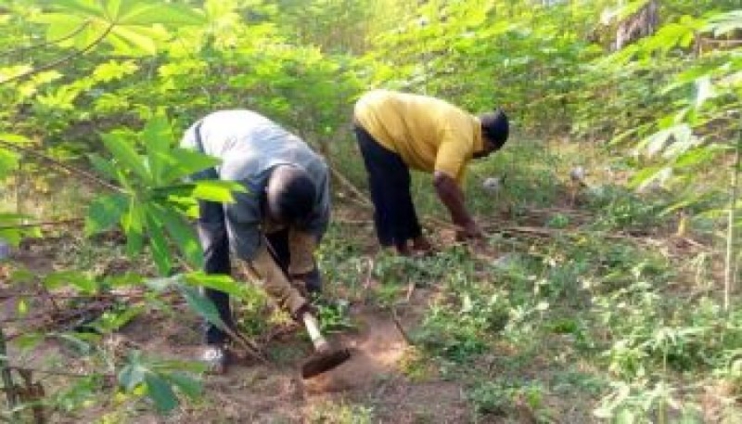CEO of Western Group Limited, Alfred Amofa says that Ghana experienced a farming debacle in 2022.
He said the 2022 farming season was the worst compared to previous years.
Speaking on JoyNews’ AM Show, Wednesday, Mr. Amofa expressed dissatisfaction with the way farming activities were handled by government in the just-ended year.
“They talk of 1983 but I was just 1 year old so I couldn’t have witnessed it, but since I became an adult, I’ve never seen such a difficult year in terms of farming like that of 2022.
Sometimes I get confused when someone suggests that 2022 was better that the previous year. It can never be possible; the realities on the field do not suggest that. I don’t think anyone can actually make any allusion to that fact because those facts would be rejected--- because you just need to go there and see the land empty, people are not farming on it.
For me, 2022 was a very difficult year and it was a catastrophic disaster,” he said.
Mr. Amofa said the One District One Factory policy which was executed to support the export of raw materials and import of finished goods, did not have any significant positive effect on agriculture.
According to him, the support government gives is just “a one-time-off thing.”
“When you do import anything, government pays a percentage of the import duties. That is what government gives to the beneficiaries of 1D1F, so it’s not like every year, government is going to give you some cash or something to support; it is a one time off thing,” he added.
According to him, about 70% of “our growers could not plant” in the 2022 farming season due to high cost of production.
Earlier on the show, Dr. Lawrence Acheampong, a lecturer at University of Cape Coast, Department of Agricultural Economics and Extension also lamented the ineffectiveness of the Planting for Food and Job policy initiated by the government. According to him, farmers are not getting the needed support.
He has recommended a review of the policy.
In 2022, Ghana experienced high increase in food prices which was largely attributed to the Russia-Ukraine war. The country also faced fertilizer supply problems. These problems alongside inflation caused high increases in food prices.
Meanwhile, government is exploring options to cut down on or totally end the importation of some food stuff especially rice.
Latest Stories
-
Amenfiman Bank increases financial support to SMEs, offers up to a million cedis to clients in loans
11 minutes -
KNUST TCC-CIMET launches Engineering Design Competition on circular economy
29 minutes -
“Programme baako, definitions brebree” – Oppong Nkrumah mocks 24-hour economy
39 minutes -
UG Corporate Football League: Group B delivers surprises in week two
44 minutes -
Minority’s motion to probe post-Dec. 7 dismissals blocked
50 minutes -
Politicians use power to commission projects before state ownership – Dr Asiedu
1 hour -
AZ Alkmaar eyes partnership with Yorktown FC; club officials set for Ghana visit
2 hours -
Armed men allegedly invade Peter Amewu’s residence in Hohoe
2 hours -
Korle Bu Maternity Block renovation to be completed soon
2 hours -
Investigate non-equitable promotions at GPHA – Transport Minister charges Director-General
2 hours -
There are less than 60 political appointees at Presidency – Kwakye Ofosu
3 hours -
Lesotho shocked by Trump’s remarks that ‘nobody has heard of the country’
3 hours -
Health authorities hail US-based group for supporting treatment of Non-Communicable Diseases in Sekyere Central District
3 hours -
Popular US preacher donates ICT lab, library to Abasua community to improve education
4 hours -
‘Akufo-Addo’s excellent management of COVID-19 secured election 2020 victory’ – John Boadu
4 hours

